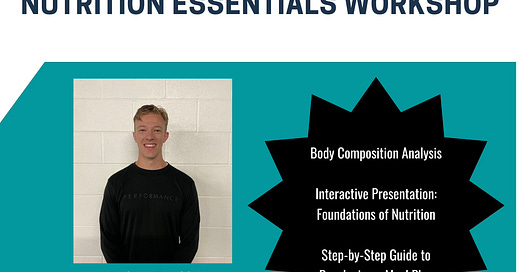3 Nutrition Myths
There’s so much information out there, and much of it is contradictory, especially when it comes to what’s best for women’s health.
As a coach dedicated to helping women achieve their best health, I understand the challenges you face when trying to navigate the often confusing world of nutrition.
There’s so much information out there, and much of it is contradictory, especially when it comes to what’s best for women’s health.
Today, I want to help clear up some of the most common myths that could be standing between you and your health goals.
Myth 1: “Saturated Fats and Red Meat are Bad for Your Health”
The Truth: The idea that fats and red meat are harmful is a misconception that has persisted for too long. This narrative was driven by the processed food industry to demonize whole foods and promote their food products.
Healthy fats, like those found in animal products, avocados, coconuts, and olives, are essential for hormone production and brain function. Similarly, red meat, especially grass-fed options, provide your body with essential proteins, iron, and B vitamins—nutrients that are particularly important for maintaining energy levels and muscle mass as you age.
Don’t be afraid to include healthy fats and lean red meat in your diet. When chosen wisely, these foods can support heart health, hormonal balance, and sustained energy.
Myth 2: “Carbohydrates Make You Gain Weight”
The Truth: Carbohydrates have gotten a bad reputation over the years, but they’re actually a crucial part of a balanced diet. The key is to focus on the right kinds of carbs. Processed carbs, like white bread and sugary snacks, can lead to weight gain because they cause spikes in your blood sugar, increase caloric consumption, and lack necessary nutrients . However, carbs in the form of sweet and non-sweet fruits, honey, pure maple syrup, and some vegetables are great assets to a healthy body. Carbs are your body’s simplest energy source and can help keep you feeling full and satisfied.
Carbohydrates, when chosen correctly, are not the enemy. They’re essential for maintaining energy levels and supporting your overall well-being.
Myth 3: “Processed Foods Can Be Healthy”
The Truth: While some processed foods may be fortified with nutrients they are also loaded with unhealthy additives, sugars, artificial ingredients, microplastics, and other chemicals. These foods are often stripped of their natural nutrients during processing, which can lead to deficiencies and health issues in a dose dependent manner. By focusing on whole, minimally processed foods, you can acquire the nutrients your body needs to function optimally.
Prioritize whole foods in your diet. They provide the full spectrum of nutrients your body needs to stay healthy, prevent disease, and keep you feeling your best.
Rethinking Your Nutrition Approach
It’s time to rethink your relationship with food. The information we have been provided has only contributed to the downfall of our health as Americans. To achieve the vitality we strive for we must look outside of the box and think for ourselves. I would love to help you do this for yourself.
Need Additional Help?
To dive deeper into these topics and learn how to create a nutrition plan that’s tailored specifically for you, I invite you to join our upcoming seminar, “Eat Smart, Live Strong; Nutrition Essentials Workshop” This event is designed to help you take control of your health with strategies that are backed by science and tailored to your individual needs.



